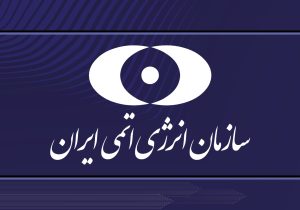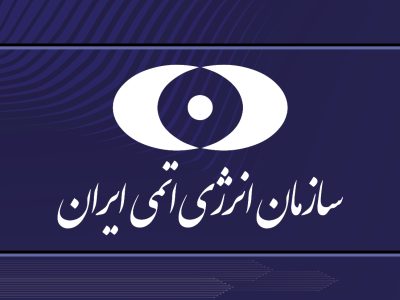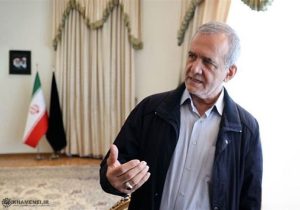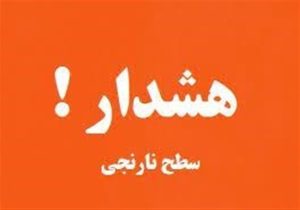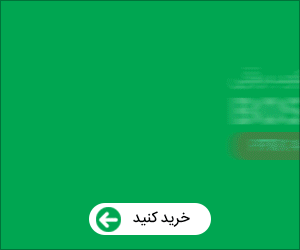به گزارش خبربین آنلاین؛ به دنبال انتشار گزارشهای مدیر کل آژانس بینالمللی انرژی اتمی به شورای حکام در ۱۵ نوامبر ۲۰۲۳، نمایندگی دائم جمهوری اسلامی ایران نزد دفتر سازمان ملل متحد و دیگر سازمانهای بینالمللی مستقر در وین، نظرات و ملاحظات خود را در قالب یادداشت توضیحی و در واکنش به گزارشهای پادمانی و برجامی مدیرکل آژانس اعلام کردند که با عناوین ذیل اعلام شده است؛
یادداشت توجیهی
نظرات و ملاحظات جمهوری اسلامی ایران در مورد گزارشهای مدیرکل به شورای حکام آژانس بینالمللی انرژی اتمی با عناوین:
“موافقتنامه پادمانی NPT جمهوری اسلامی ایران (GOV/2023/58, 15 November 2023)“
و
“نظارت و راستیآزمایی در جمهوری اسلامی ایران در پرتو قطعنامه ۲۲۳۱ (۲۰۱۵) شورای امنیت سازمان ملل متحد (GOV/2023/57, 15 November 2023)”
نمایندگی دائم جمهوری اسلامی ایران در دفتر سازمان ملل متحد و سایر سازمانهای بین المللی مستقر در وین مایل است نظرات و مشاهدات خود را به شرح زیر در مورد گزارشهای مدیرکل به شورای حکام آژانس بینالمللی انرژی اتمی مندرج درGOV/2023/58 و GOV/2023/57 به اشتراک بگذارد:
الف- نظرات کلی
- جمهوری اسلامی ایران به طور کامل به تعهدات خود از جمله موافقتنامه پادمان جامع (INFCIRC/214) پایبند بوده و تمام تلاش خود را به کار گرفته است تا آژانس بتواند به طور مؤثر فعالیتهای راستیآزمایی خود را در ایران از جمله اقدامات نظارتی و مراقبتی(C/S) در مورد مواد و فعالیتهای هستهای در ایران را انجام دهد که در نظام راستیآزمایی آژانس منحصر به فرد است.
- تفکیک موضوعات در دو گزارش با عناوین فوق به درستی رعایت نشده است. برخی از موارد مرتبط با برجام در گزارش پادمانیNPT تکرار شده است و بالعکس، برخی از موارد مرتبط با موضوعات پادمانی NPT در گزارش برجام دیده میشود. به عنوان مثال، فعالیتهای راستیآزمایی و نظارتی مرتبط با ساخت سانتریفیوژها، لولههای روتور و بیلوز که در محدوده برجام تعریف شدهاند، نباید تحت دستور کار موافقتنامه پادمانی NPT گزارش شوند.
- ماده ۲ موافقتنامه پادمان جامع (CSA) تصریح میکند: “آژانس حق و تعهد خواهد داشت که تضمین کند، مطابق با شرایط موافقتنامه یاد شده، در مورد تمام مواد چشمه یا مواد شکافتپذیر ویژه در کلیه فعالیتهای هستهای صلحآمیز در داخل قلمرو ایران، تحت صلاحیت این کشور یا تحت کنترل آن در هر نقطه، با هدف انحصار راستیآزمایی اینکه چنین موادی به سمت ساخت سلاحهای هستهای یا سایر وسایل انفجاری هستهای منحرف نشدهاند، پادمان اعمال خواهد شد”. بنابراین، هرگونه گسترش اقدامات راستیآزمایی در مورد مواد و فعالیتهای غیرهستهای فراتر از موافقتنامه پادمان جامع (CSA) از نظر حقوقی قابل توجیه نیست.
- به دنبال خروج غیرقانونی آمریکا از برجام و ناتوانی اتحادیه اروپا و سه کشور اروپایی آلمان و فرانسه و انگلستان در اجرای تعهدات خود، ایران بر اساس بندهای ۲۶ و ۳۶ برجام، تمام اقدامات شفافساز داوطلبانه فراتر از موافقتنامه پادمان جامع خود از جمله اجرای کد اصلاحی ۳/۱ شده (همانطوری که در بند ۶۵ پیوست I برجام مشخص شده است) را متوقف کرد.
- نامه اخیر سه کشور اروپایی آلمان و فرانسه و انگلستان به رئیس شورای امنیت در ۱۴ نوامبر ۲۰۲۳، با بستن چشم بر علت اصلی وضعیت فعلی پیرامون برجام، عمداً اطلاعات نادرستی در مورد تعهدات ایران ذیل برجام و برنامه صلحآمیز هسته ای آن منتشر میکند.
- تصمیم ایران برای توقف اجرای تعهدات خود تحت برجام کاملاً مطابق با حقوق ذاتی آن طبق بندهای ۲۶ و ۳۶ برجام و در پاسخ به خروج غیرقانونی آمریکا از برجام، همراه با ناتوانی سه کشور اروپایی آلمان و فرانسه و انگلستان در پایبندی به تعهدات خود بود. این واقعیت آشکار به هیچ وجه نمیتواند مبنایی برای سه کشور اروپایی آلمان و فرانسه و انگلستان برای خودداری از انجام تعهدات خود باشد.
- تصمیم سه کشور اروپایی آلمان و فرانسه و انگلستان مبنی بر خودداری از انجام تعهدات لغو تحریمهای خود که در بند ۲۰ ضمیمه V برجام در روز انتقال (۱۸ اکتبر ۲۰۲۳) مشخص شده است، اقدامی غیرقانونی و یکی دیگر از مصادیق صریح عدم انجام قابل توجه تعهدات آنها در تخطی از برجام و قطعنامه ۲۲۳۱ شورای امنیت سازمان ملل متحد بود.
- در مورد موضوع مربوط به اصطلاحاً دو مکان، باید تأکید کرد که منشأ موضوع به ادعاهایی برمیگردد که عمدتاً توسط طرف ثالث بد نیت، یعنی رژیم اسرائیل مطرح شده است، که تعهدی به هیچیک از اسناد کشتار جمعی از جمله به ویژه معاهده منعگسترش سلاحهای هستهای (NPT) ندارد و مکرراً تأسیسات هستهای ایران و تأسیسات اختصاص داده شده به اهداف صلحآمیز را تهدید به حمله کرده است که برخلاف قطعنامههای متعدد شورای امنیت از جمله به ویژه قطعنامههای شماره ۴۰۷، ۱۹۸۳؛ ۴۴۴، ۱۹۸۵؛ ۴۷۵، ۱۹۸۷ و ۹۳۹، ۱۹۹۰ است که هیچ کدام مورد احترام این رژیم قرار نگرفته است. این رژیم آنقدر گستاخ بوده که اخیراً ایران را به حمله اتمی تهدید کرده است. نتانیاهو طی بیانیهای که به صورت زنده در سراسر جهان پخش شد گفت: “ایران باید با یک تهدید هستهای معتبر روبرو شود” و وزیر میراث او نیز گفت: “پرتاب بمب هستهای یکی از گزینههای حمله به حماس خواهد بود”.
- لازم به ذکر است با توجه به همکاری بیشتر با آژانس در سالهای اخیر، ایران اقدامات داوطلبانه را در چارچوب چندین بیانیه مشترک از جمله بیانیه مشترک ۱۳ اسفند ۱۴۰۱ (۴ مارس ۲۰۲۳) اجرا کرد.
ب- نظرات در مورد بخش “سابقه” گزارش پادمانی NPT:
- در بند ۲ گزارش پادمانی که بیان میکند: “ارزیابی جامع همه اطلاعات در دسترس آژانس مرتبط با پادمان برای اطمینان از اینکه هیچ نشانهای مبنی بر انحراف مواد هستهای اعلام شده از فعالیتهای هستهای صلحآمیز وجود ندارد، هیچ نشانهای از تولید یا فرآوری مواد هستهای اعلام نشده در مؤسسات و مکانهای خارج از مؤسسه (LOF) و هیچ نشانهای از مواد و فعالیتهای هستهای اعلام نشده در کشور دارای موافقتنامه پادمان جامع وجود ندارد، ضروری است”، مشاهدات زیر بایستی موردر گیرند:
- ارجاع آژانس در زیرنوس ۴ گزارش GOV/2023/5در مورد آن دسته از کشورهایی که دارای موافقتنامه پادمان جامع (CSA) و پروتکل الحاقی (AP) هستند، همانطوری که در گزارشهای سالانه اجرای پادمان (SIR) منعکس شده است، قابل اعمال است: “برای اطمینان از اینکه هیچ نشانهای از مواد یا فعالیتهای هستهای اعلام نشده در یک کشور وجود ندارد، آژانس باید ارزیابی سازگاری برنامه هستهای اعلام شده کشور با نتایج فعالیتهای راستیآزمایی آژانس تحت موافقتنامههای پادمانی مربوطه و پروتکلهای الحاقی… را انجام دهد”.
- این یک نگرانی جدی است که موضوع مذکور توسط آژانس در مورد ایران اعمال میشود. آژانس در چند مورد موضع متفاوتی را اتخاذ کرده است که با مطالب یاد شده مطابقت ندارد. چنین رویکردی با در نظر گرفتن مفاد و روح مطالب مذکور نه قانونی است و نه از نظر حرفهای موجه است.
- مدیرکل در مناسبتهای مختلفی در گزارش خود با استفاده از کلماتی مانند “نگرانی جدی/عمیق/قابل توجه” که عینی، حرفهای نیست و توجیه فنی ندارد بلکه رویکردی سیاسی است که باید از آن اجتناب میشد، اظهار نظر کرده است. اشاره مدیرکل به “همکاری اساسی ناکافی” به طور کامل همکاری ایران با آژانس در زمینههای مختلف از جمله در رابطه با بیانیههای مشترک را نادیده گرفته است.
- در بند ۶ گزارش (GOV/2023/58آمده است: “…موضوعات پادمانی مربوط به این سه مکان اعلام نشده به دلیل همکاری اساسی ناکافی ایران، علیرغم تعاملات متعدد با آژانس، باقیمانده تلقی میگردد”. لازم به ذکر است جمهوری اسلامی ایران بارها و بارها از جمله از طریق INFCIRC/1131 مورخ ۱۴ سپتامبر ۲۰۲۳، INFCIRC/996 مورخ ۷ ژوئن ۲۰۲۲ و INFCIRC/967 مورخ ۳ دسامبر ۲۰۲۱ تأکید کرده است که هیچ مکانی تحت موافقتنامه پادمان جامع (CSA) که نیازمند اعلام باشد وجود نداشته است. علاوه بر این، ادعای آژانس در مورد مکان اعلام نشده از طریق ارائه اطلاعات، اسناد و شواهد معتبر مرتبط با پادمان پشتیبانی نشده است.
- در زیرنویس ۱۲، آژانس ادعا میکند که “تحلیل تمام اطلاعات در دسترس آژانس مرتبط با پادمان در مورد «مریوان» با انجام آزمایشهای انفجاری توسط ایران با سپر محافظ در آمادهسازی برای استفاده از آشکارسازهای نوترونی مطابقت دارد (بند ۲۰، GOV/2022/26)”. این یک عبارت گمراه کننده است که دور از نتیجهگیری پادمانی است.
- در مورد موضوع غیرپادمانی “آزمایشهای انفجاری”، با تغییر عبارت “… ممکن است برنامهریزی کرده باشد…” به “… برنامهریزی کرده است” و اخیراً به “… آزمایش انجام داده است…” (بند ۱۳ GOV/2022/26، بند ۴، GOV/2023/9 و همچنین زیرنویس ۱۲ GOV/2023/58) میتوان به تحول تدریجی ادبیات آژانس در مکان به اصطلاح مریوان پی برد. این نوع استنتاج توسط مدیرکل نه تنها بیارتباط با موافقتنامه پادمان جامع (CSA) است بلکه با متن و روح بیانیه مشترک ۴ مارس ۲۰۲۳ نیز در تضاد است. نظرات و توضیحات ایران در مورد بند ۸ گزارش “… ارزیابی آژانس از فعالیتهایی که ایران در مریوان انجام داد بدون تغییر باقی میماند” قبلاً در بند ۸ INFCIRC/1094 منعکس شده است.
ج. نظرات در مورد بخش “موضوعات پادمانی باقیمانده” گزارش (GOV/2023/58)
- در مورد بند ۹ در مورد ورامین، موارد زیر لازم است درنظر گرفته شود:
- همانطوری که مکرراً توسط جمهوری اسلامی ایران توضیح داده شده است، هیچ مکان اعلام نشدهای که طبق موافقتنامه پادمان جامع (CSA) نیازمند اعلام باشد وجود نداشته است.
- ادعای وجود “کارخانه در مقیاس آزمایشی اعلام نشده که بین سالهای ۱۹۹۹ تا ۲۰۰۳ استفاده شد” توسط هیچ سند معتبری پشتیبانی نشده است.
- اشاره آژانس به تنها تصاویر ماهوارهای بیکیفیت برای ارزیابی اینکه “کانتینرهای خارج شده از ورامین در نهایت به تورقوزآباد منتقل شدند….”صحیح، قابل اثبات و قابل راستیآزمایی نیست. هزاران کانتینر مشابه در سراسر کشور در حال حرکت هستند. بنابراین، نمی تواند ادعای خروج و انتقال از یک مکان به مکان دیگر را پشتیبانی کند.
- در مورد بند ۹ در مورد تورقوز آباد لازم است به موارد زیر توجه شود:
- ارزیابی آژانس بر اساس اطلاعات و شواهد معتبر نیست. تورقوزآباد در واقع یک مکان صنعتی است که شامل انواع انبارها برای نگهداری مواد شوینده، مواد شیمیایی، مواد غذایی، پارچه و منسوجات، لاستیک و قطعات خودرو، لوله و اتصالات و برخی ضایعات صنعتی است. این مکان در چنین منطقهای برای ذخیرهسازی مواد هستهای مناسب نیست.
- همانطوری که مکرراً گفته شد محل مورد نظر یک انبار ضایعات صنعتی است که جابجایی کانتینرها در آنجا یک ضرورت اجتنابناپذیر است. جابجایی کانتینرها از یک منطقه صنعتی تنها مدرکی برای ادعای آژانس است که نمیتوان آن را مبنای محکمی برای هرگونه ادعا درنظر گرفت. بنابراین اتهام جابجایی مواد هستهای و تجهیزات نمیتواند به عنوان مبنای محکمی محسوب گردد. جمهوری اسلامی ایران در زمینه انجام تحقیقات گسترده در مورد سابقه فعالیتهای انجام شده در این مکان، منشأ ذرات گزارش شده توسط آژانس را پیدا نکرد. هیچگونه فعالیت یا انبار هستهای در این مکان وجود نداشته است. بنابراین، هیچ سرنخ فنی در مورد منشأ ذرات گزارش شده یافت نشد. با این حال، احتمال وجود چنین ذرات از طریق خرابکاری را نمیتوان منتفی دانست.
- درمورد فرض نادرست آژانس مبنی بر برچیدن کانتینرهای از این مکان به صورت دست نخورده، اطلاعاتی که ثابت میکند که صحت فرض آژانس نادرست است قبلاً به آژانس ارائه شده است.
- در ادامه این گزارش در بند ۱۰ آمده است: “…ذرات مواد هستهای شناسایی شده در ورامین و تورقوز آباد….”، بایستی تأکید شود که:
- استفاده از عبارت “ذرات مواد هستهای” به جای “ذرات اورانیوم” که در گزارش قبلی (GOV/2023/26) منعکس شده است، منجر به تفسیر نادرست میشود.
- صرف وجود چند ذرات اورانیوم در مکانهای ادعا شده، که ممکن است در هر مکانی از یک کشور یافت شود، نباید به عنوان یک موضوع پادمانی تلقی شود.
- در بند ۱۲ گزارش آمده است که “آژانس ناهمخوانی را در رابطه با مقدار مواد هستهای شناسایی کرد که باید حل و فصل شود”. لازم به ذکر است که:
- پیشینه ناهمخوانی در یادداشت توضیحی INFCIRC/1131 مورخ ۱۴ سپتامبر ۲۰۲۳ تشریح شده است. در مورد این موضوع، دو نشست فنی بین آژانس و ایران در وین در سپتامبر و نوامبر ۲۰۲۳ برگزار شد و در انتظار فعالیتهای راستیآزمایی بیشتر آژانس در آینده نزدیک است.
- در حالی که موضوع یاد شده فقط به موافقتنامه پادمان جامع (CSA) مربوط میشود، به دلایل نامعلومی به طور غیرمرتبطی در زیرنویس ۲۲ گزارش برجامی (GOV/2023/57) نیز منعکس شده است.
د. نظرات در مورد بخش “بیانیه مشترک” گزارش
- در مورد بند ۲۴ گزارش، لازم به ذکر است که بند اول بیانیه مشترک تصریح میکند که همکاری ایران با آژانس در چارچوب به موافقتنامه پادمان جامع (CSA) است. هر گونه همکاری بیشتر باید متقابلاً بر اساس روش ذکر شده در بیانیه مشترک مورد توافق قرار گیرد. در این راستا، ایران با نصب دوربین در کارگاه اصفهان توسط آژانس بدون دسترسی به دادههای جمعآوری شده موافقت کرد. بدیهی است که هر اقدام دیگری نیاز به توافق بر روی روش انجام کار (modality) دارد.
- در بندهای ۲۹ الی ۳۳ در مورد لغو انتصاب بازرسان آژانس، حقایق زیر باید درنظر گرفته شود:
- همانطوری که در ماده ۹(a)(ii) موافقتنامه پادمان جامع (CSA) بین ایران و آژانس (INFCIRC/214) مشخص شده است، به صراحت بیان شده که ایران حق حاکمیت خود را برای اعتراض به لغو انتصاب بازرسان آژانس، نه تنها در زمان پیشنهاد انتصاب بلکه در هر زمان دیگری پس از انتصاب ایشان محفوظ میدارد.
- اعمال این حق به هیچ وجه مستقیم یا غیرمستقیم بر توانایی آژانس در انجام بازرسیهای خود در ایران تأثیر نمیگذارد. ادعای مدیرکل مبنی بر “خطرات احتمالی مانع از انجام بازرسی همانطوری که در ماده ۹(a)(iii) موافقتنامه پادمان جامع (CSA) توضیح داده شده است” فاقد دلیل است و هیچ ارزشی ندارد. نیازی به ذکر نیست که فهرست بازرسان منصوب شده برای ایران در حال حاضر شامل ۱۱۹ نفر است، که عدد بسیار بالایی است.
- لازم به ذکر است ایران در نامهای به مدیرکل در تاریخ ۳۰ اکتبر ۲۰۲۳، موافقت خود را با انتصاب ۸ بازرس جدید پیشنهادی آژانس اعلام کرد.
ه. نظرات در مورد گزارش بخش “خلاصه” (GOV/2023/58)
- در حالی که همکاری ما با آژانس در مسیر درستی قرار دارد، ابراز تأسف در گزارش برای موضوعی که هنوز ادامه دارد، بینتیجه است
- در مورد اجرای کد اصلاحی ۱/۳ ترتیبات فرعی، نیازی به ذکر نیست که اجرای کد اصلاحی ۱/۳ بخشی از اقدامات شفافساز و اعتمادسازی بود که در بند ۶۵ پیوست یک برجام منعکس شده است. این اقدام بر اساس بندهای ۲۶ و ۳۶ برجام پس از خروج آمریکا از این توافق به حالت تعلیق درآمد.
- علیرغم اینکه آژانس اسناد معتبری را در رابطه با ادعای خود درباره “مواد هستهای اعلام نشده و فعالیتهای هستهای مرتبط” به ایران ارائه نکرد، و ایران موظف نبوده و نیست که اسناد غیراصیل و ساختگی را به عنوان اطلاعات مرتبط با پادمان درنظر بگیرد و به درخواستهای آژانس پاسخ دهد؛ با این حال، ایران به طور داوطلبانه اجازه دسترسی به آژانس داد و اطلاعات و توضیحاتی را در مورد این مکانها ارائه کرد. متأسفانه آژانس تمامی اسناد ساختگی و اطلاعات جعلی ارائه شده توسط رژیم اسرائیل را معتبر میداند و همین امر باعث شد آژانس بر این اساس ارزیابی اشتباه و غیر قابل اعتمادی را نتیجهگیری نماید. آژانس باید از این نگرش اجتناب کند.
- ارجاع مدیرکل به بیانیه مشترک (بند ۴۰) در مورد تعهد (Commitment) ناقص و نادرست است زیرا ایران هیچ تعهد خاصی را بدون توافق دوجانبه نپذیرفته است. بیانیه مشترک توسط ایران به بنبست (Frozen) منجر نشده است بلکه به دلیل عدم تمایل آژانس به مشارکت در بحث روش انجام کار (modality) که نیازمند توافق است، به بنبست رسیده است.
- در بند ۴۱ “مدیرکل همچنان لغو انتصاب ناگهانی چند بازرس باتجربه آژانس توسط ایران را به شدت محکوم مینماید…”. لازم به ذکر است از مدیرکل انتظار میرود گزارش واقعی و نه احساسی منتشر کند. بنابراین عبارت “به شدت محکوم مینماید”حرفهای نیست و لازم است در گزارشهای بعدی وی از آن پرهیز شود. همچنین جمهوری اسلامی ایران نگرانی خود را از سیاسی شدن این موضوع که در بیانیهها و گزارشهایی با انگیزههای سیاسی و غیرسازنده منعکس شده است، ابراز میدارد که منحصراً ایران را به دلیل اعمال حقوق مشروع خود مورد انتقاد و محکومیت قرار میدهد. چنین رویکردی آشکارا با اصل راهنمای بیان شده در مقدمه بیانیه مشترک ۴ مارس ۲۰۲۳ که در آن آژانس متعهد شد با ایران با رعایت کامل حقوقش براساس موافقتنامه پادمان جامع (CSA) تعامل داشته باشد، در تضاد است. هرگونه تلاش برای انکار یا نقض حقوق حاکمیتی ایران به طور قاطع رد میشود. استفاده از حق انکارناپذیر ایران باید به طور کامل شناخته شده و مورد احترام قرار گیرد.
- بیانیه مشترک فینفسه داوطلبانه است و نباید فراتر از اصل تثبیت شده حقوق بینالملل هرگونه اقدام داوطلبانه از جانب طرف مقابل آنگونه که دوست داشته باشد تعریف و اجرا شود. علاوه بر این، اقدامات داوطلبانه موکول به توافق درخصوص روش انجام کار (modality) است.
و. نتیجهگیری
- جمهوری اسلامی ایران تاکنون همکاری کامل خود را در چارچوب موافقتنامه پادمان جامع (CSA) با آژانس ارائه کرده است. مجدداً باید تأکید شود که تمامی مواد و فعالیتهای هستهای ایران به طور کامل به آژانس اعلام و توسط آن راستیآزمایی شده است.
- جمهوری اسلامی ایران قویاً انتظار دارد که آژانس گزارشهای خود را در مورد فعالیتهای راستیآزمایی در ایران بر اساس اصول بیطرفی، حرفهای و به طور عینی انجام دهد.
- مجدداً باید تأکید شود که تمام مواد و فعالیتهای هستهای ایران به طور کامل به آژانس اعلام شده و از یک نظام راستیآزمایی بسیار قوی نیز عبور کرده است. اگرچه جمهوری اسلامی ایران هیچ تعهدی برای پاسخگویی به سؤالات آژانس بر اساس اسناد ساختگی و غیرمعتبر ندارد، با این حال، ایران به صورت داوطلبانه در راستای همکاری، تمام اطلاعات لازم، اسناد پشتیبان و دسترسیهای درخواستی آژانس را فراهم کرده است.
- آژانس نباید ارائه تضمین در مورد صلحآمیز بودن برنامه هستهای ایران را به افزایش دانش خود درباره فعالیتهای غیرهستهای ایران پیوند دهد.
- جمهوری اسلامی ایران بار دیگر بر اهمیت و ارزش همکاری گسترده با آژانس تأکید میکند. این همکاری سازنده نباید به دلیل منافع سیاسی کوتهبینانه تضعیف شود. بر این اساس، آژانس مسئولیت دارد که عقلانیت لازم را در پرداختن به چنین موضوعاتی به شکل مجدانه نشان دهد تا از مخدوش شدن تصویر بزرگتر در مورد همکاری بین ایران و آژانس جلوگیری شود. اصولاً اطلاعات نامعتبر، جعلی و ساختگی نباید مبنای راستیآزمایی قرار گیرد.
Explanatory Note of the Islamic Republic of Iran in response to the International Atomic Energy Agency (IAEA) Director General Reports on the Safeguards and the JCPOA
Permanent Mission of the Islamic Republic of Iran
to the United Nations Office and other International Organizations in Vienna
Explanatory Note
on the Reports of the Director General to the IAEA Board of Governors
entitled “NPT Safeguards Agreement with the Islamic Republic of Iran”
(GOV/2023/58 – 15 November 2023)
and “Verification and Monitoring in the Islamic republic of Iran in light of United Nations Security Council resolution 2231 (2015)”
(GOV/2023/57 – 15 November 2023)
The Permanent Mission of the Islamic Republic of Iran to the United Nations Office and other International Organizations in Vienna would like to share its comments and observations on the Director General Report to the IAEA Board of Governors GOV/2023/58 and GOV/2023/57 as follows:
- General Comments
- The Islamic Republic of Iran has complied fully with its obligations including Comprehensive Safeguards Agreement (INFCIRC/214) and has done its utmost to enable the Agency to effectively carry out its verification activities in Iran, including C/S measures on Iran’s nuclear material and activities, which is unique in the Agency’s verification system.
- The separation of issues divided under two different reports has not been duly respected. Some JCPOA related matters have been repeated in the NPT Safeguards report and vice versa, some NPT Safeguards related matters can been seen in the JCPOA report. As an example, verification and monitoring activities related to manufacture of centrifuges, rotor tubes and bellows, which are defined in the scope of JCPOA, should not be reported under the NPT Safeguards Agreement Agenda Item.
- Article 2 of the CSA stipulates “The Agency shall have the right and the obligation to ensure that safeguards will be applied, in accordance with the terms of this Agreement, on all source or special fissionable material in all peaceful nuclear activities within the territory of Iran, under its jurisdiction or carried out under its control anywhere, for the exclusive purpose of verifying that such material is not diverted to nuclear weapons or other nuclear explosive devices”. Therefore, any expansion of verification measures on non-nuclear material and activities goes beyond the CSA and is not legally justified.
- Following the United States’ unlawful withdrawal from the JCPOA and failure of the E3/EU to fulfill their commitments, in exercising of its rights under paragraphs 26 and 36 of the JCPOA, Iran had ceased all voluntary transparency measures beyond its Comprehensive Safeguards Agreement, including implementation of modified Code 3.1 (as specified in paragraph 65 of Annex I to the JCPOA).
- The recent E3’s letter to the President of the Security Council on 14 November 2023, by turning a blind eye on the root cause of the current situation surrounding the JCPOA, intentionally spreads false information concerning Iran’s commitments under the JCPOA and its peaceful nuclear program.
- Iran’s decision to cease performing its commitments under the JCPOA was fully in accordance with its inherent rights under paragraphs 26 and 36 of the JCPOA and in response to the U.S. unlawful withdrawal from the JCPOA, coupled with the E3’s inability to uphold their commitments. This blatant fact, by no means, can constitute a basis for E3 to refrain from implementing their commitments.
- The E3’s decision to refrain from implementing their sanctions-lifting commitments specified in Paragraph 20 of Annex V of the JCPOA on Transition Day (18 October 2023) was an unlawful act and another explicit instance of significant non-performance of their commitments in violation of both the JCPOA and the United Nations Security Council Resolution 2231.
- On the issue related to the so-called two locations, it should be underlined that the origin of the issue goes back to the allegations primarily posed by an ill-intended third party, namely the Israeli regime, which does not have a single commitment to any WMD instruments, including in particular the NPT, and repeatedly threatens to attack Iran’s nuclear facilities and installations devoted to peaceful purposes, contrary to the numerous GC resolutions, including in particular ۴۰۷, ۱۹۸۳; ۴۴۴, ۱۹۸۵; ۴۷۵, ۱۹۸۷ and ۹۳۹, ۱۹۹۰, none of which has been respected by this regime. The regime has been so rude that most recently has threatened Iran to nuclear attack. Netanyahu during his statement which was broadcasting live across the world said that “Iran must face a credible nuclear threat” and his heritage minister said “dropping a nuclear bomb would be one of the options to attack Hamas”.
- It should be noted that in light of further cooperation with the Agency, in recent years, Iran implemented voluntary measures in the framework several Joint Statements including the 4th March 2023.
- Comments on the NPT Safeguards report, Background:
- On paragraph 2 of the report which states: “The comprehensive evaluation of all safeguards-relevant information available to the Agency is essential in ascertaining that there are no indications of the diversion of declared nuclear material from peaceful nuclear activities, no indications of undeclared production or processing of nuclear material at declared facilities and locations outside facilities (LOFs), and no indications of undeclared nuclear material and activities in a State with a comprehensive safeguards agreement”, the following observations need to be highlighted:
- The Agency’s reference in footnote 4 of GOV/2023/58, is applicable to those States having CSA and AP in force as reflected in annual SIRs: “to ascertain that there are no indications of undeclared nuclear material or activities in a State, the Agency needs to carry out an evaluation of the consistency of the State’s declared nuclear programme with the results of the Agency’s verification activities under the relevant safeguards agreements and additional protocols…”.
- It is a matter of grave concern that this would be applicable by the Agency to Iran. Divergent position inconsistent with this provision has been taken by the Agency on a few occasions. Such approach is neither lawful nor justified on a professional ground, taking into account the letter and spirit of this provision.
- The Director General on different occasions in the report has expressed his sentiment by using words such as “serious/deep/profound concern”, which is not objective, professional and technical explanation, but rather is a political approach which should have been avoided. The DG’s reference to “insufficient substantive cooperation” totally overlooks Iran’s cooperation with the Agency rendered in different fields including under the Joint Statements.
- Paragraph 6 of the report (GOV/2023/58), states: “…the safeguards issues related to these three undeclared locations remain outstanding due to insufficient substantive cooperation by Iran, despite numerous interactions with the Agency”, needs to be noted that: time and again the Islamic Republic of Iran has reiterated that there has never been any location to be declared under the CSA, including through INFCIRC/1131 dated 14 September 2023, INFCIRC/996 dated 7 June 2022 and INFCIRC/967 dated 3 December 2021. Furthermore, the Agency’s claim of undeclared location has not been supported by authentic safeguards-relevant information, documents and evidences.
- In footnote 12, The Agency’s claim that “the analysis of all safeguards-relevant information available to the Agency related to ‘Marivan’ is consistent with Iran having conducted explosive experiments with protective shielding in preparation for the use of neutron detectors (GOV/2022/26, paragraph. 20)”. This is a misleading expression, far away from safeguards conclusion.
- Regarding non-safeguards matter “the explosive experiments”, a gradual evolution of the Agency’s language in the so-called Marivan can be seen by changing the phrase “… may have planned…” to “… planned…” and most recently to “…having conducted…” (GOV/2022/26, Para. 13, GOV/2023/9, Para. 4 as well as GOV/2023/58, footnote 12). This kind of deduction made by the Director General is not only irrelevant to the CSA but also contradicts the letter and spirit of the 4th March 2023 Joint Statement.
- Iran’s comments and explanations on the paragraph 8 of the report “…the Agency’s assessment of the activities that were undertaken by Iran at ‘Marivan’ remains unchanged” has already been reflected in INFCIRC/1094, paragraph. 8.
- Comment on the Report (GOV/2023/58), Outstanding Safeguards Issues
- Regarding Paragraph 9 on Varamin , The followings need to be considered:
- As it was frequently explained by the Islamic Republic of Iran, there has never been any undeclared location which is required to be declared under the CSA.
- The allegation of existing “undeclared pilot-scale plant used between 1999 and 2003” was not supported by any authentic document.
- The Agency’s reference to the sole poor quality satellite imagery for assessing that “… containers removed from Varamin were eventually transferred to Turquzabad …” is not correct, provable, and verifiable. There are thousands of similar containers moving around the country. Therefore, could not support the claim of removal and transfer from one location to another.
- Regarding paragraph 9 on “Turquzabad”, the following needs to be considered:
- The Agency’s assessment is not based on authentic information and evidences. Turquzabad is actually an industrial place encompassing various kinds of warehouses and depots for storing detergents, chemicals, foodstuff, fabrics & textiles, vehicles tire and parts, tubes &joints, and some industrial scraps. The location in such area is not compatible for storage of nuclear material.
- As it has been frequently said, the location in question is an industrial scraps storage which movement of containers is an essential necessity. Removing of containers from an industrial area is the mere evidence for the Agency’s claim that cannot be considered as a solid ground for any allegation. Therefore, the accusation of movement of nuclear material and equipment has no ground. In our intensive investigations into the background of activities carried out at this location, the Islamic Republic of Iran did not find the origin of the particles reported by the Agency. There has not been any nuclear activity or storage in this location. Therefore, no technical clue concerning the origin of reported particles were found. However, the possibility of presence of such particles by sabotage cannot be excluded.
- On the Agency’s incorrect assumption of removal of containers intact from the location, the information that proves the Agency’s assumption is not correct has already been provided to the Agency.
- The report further states in paragraph 10, “…the nuclear material particles identified at Varamin and Turquzabad…”. It should be emphasized that:
- The phrase “nuclear material particles” being used instead of “uranium particles”, reflected in the previous report (GOV/2023/26), leads to misinterpretation.
- Mere presence of few uranium particles at the claimed locations, which might be found in any location of a State, should not be regarded as a safeguards issue.
- It is stated in paragraph 12 of the report that “The Agency identified a discrepancy that needed to be resolved in the amount of nuclear material”. It should be mentioned that:
- The background of the discrepancy has been described in the Explanatory Note (INFCIRC/1131 dated 14 September 2023). On this issue, two technical meetings between the Agency and Iran were held in Vienna in September and November 2023, awaiting further additional Agency’s verification activities in the near future.
- While this issue is only related to the CSA, for unknown reasons it has been irrelevantly reflected in the footnote 22 of the JCPOA Report (GOV/2023/57).
- Comment on the Report, Joint Statement
۱۸. Regarding paragraph. 24, it should be highlighted that: The first bullet of The Joint Statement stipulates that the Iran’s cooperation with the Agency is in the framework of the CSA. Any further cooperation should mutually be agreed based on the modality mentioned in the Joint Statement. In this regard, Iran agreed to install camera by the Agency at workshop in Esfahan without having access to collected data. It is evident that any further measure needs to agree on a modality.
۱۹. On Paragraphs 29-33 regarding de-designation of Agency inspectors, the following facts need to be taken into consideration:
- As outlined in Article 9(a)(ii) of the (CSA) between Iran and the Agency (INFCIRC/214), it is unequivocally established that Iran retains the sovereign prerogative to object to the designation of Agency inspectors, not only at the time of the proposed designation but also any other time after designation has been made.
- Excretion of this right, by no mean impacts, directly or indirectly, the ability of the IAEA to conduct its inspections in Iran. The DG’s assertion of “potential risks of impeding the conduct of the inspection as described in Article 9(a)(iii) of the CSA” lacks substantiation and has no merit. No need to mention the list of designated inspectors for Iran currently comprises 119 individuals, which is a quite high number.
- It should be noted that in a letter to the Director General dated 30 October 2023, Iran announced its approval of the designation of 8 new inspectors proposed by the Agency.
Comments on the report (GOV/2023/58), Summary
۲۰. While our cooperation with the Agency is in right track, expressing sentiments of regret in the report for something which is still ongoing is unproductive.
۲۱. Regarding the implementation of modified Code 3.1 of the Subsidiary Arrangements, needless to mention that the implementation of modified Code 3.1 was part of transparency and confidence building measures, reflected in paragraph 65 of Annex I to the JCPOA. This measure was suspended under paras 26 and 36 of the JCPOA, following the U.S. withdrawal from the deal.
۲۲. Despite the Agency did not present authentic documents to Iran concerning its claim on“undeclared nuclear material and nuclear-related activities”, and Iran was and is not obliged to consider unauthentic and fabricated documents as Safeguards-related information and to respond the Agency’s requests; however, Iran voluntarily granted access and provided information and clarification to the Agency on these locations.Unfortunately, the Agency considers all fabricated documents and fake information provided by the Israeli regime as authentic, and this led the Agency to conclude wrong and unreliable assessment accordingly. This attitude should be avoided by the Agency.
۲۳. Reference of the Director General to the Joint Statement (paragraph. 40) on the commitment is incomplete and incorrect due to the fact that Iran has not accepted any specific commitment without being mutually agreed. The Joint Statement has not been frozen by Iran. It is frozen due to the continued unwillingness of the Agency to engage discussing the modality need to be agreed upon.
۲۴. On paragraph 41 “The Director General continues to strongly condemn Iran’s sudden withdrawal of the designations of several experienced Agency inspectors…”. It should be mentioned that the Director General is expected to report factually and not sentimentally. Therefore, the expression of “strongly condemn” is not professional and needs to be avoided in his future reports. Furthermore, the Islamic Republic of Iran expresses its concern over the politicization of this matter, as reflected in politically motivated and counterproductive statements and reports that singularly criticize and condemn Iran for exercising its legitimate rights. Such an approach obviously contradicts the guiding principle articulated in the introduction of the Joint Statement of 4 March 2023, wherein the Agency pledged to engage with Iran fully respecting its rights under the CSA. Any attempt to deny or violate Iran’s sovereign rights is categorically rejected. Exercising of Iran’s undeniable right shall be fully recognized and respected.
۲۵. The Joint Statement per se is voluntary and shall not be go beyond the established principle of international law that any voluntary measure is defined and implemented by the concerned party as it deems necessary. Furthermore, those voluntary measures were pending on modalities to be agreed upon.
F. Conclusion
- The Islamic Republic of Iran has so far rendered its full cooperation under the CSA to the Agency. It has to be re-emphasized that all Iran’s nuclear material and activities have been completely declared and verified by the Agency.
۲۷. The Islamic Republic of Iran rightfully expects that the Agency conducts its reporting on verification activities in Iran based on the principles of impartiality, professionalism, and objectivity.
۲۸. It has to be re-emphasized that all Iran’s nuclear material and activities have been completely declared to the Agency and has gone through a very robust verification system. Although, the Islamic Republic of Iran has no obligation to respond to the Agency’s questions based on fabricated and unauthentic documents, however, on a voluntary basis and cooperative manner, Iran provided all necessary information, supporting documents and granted accesses requested by the Agency.۲۹. The assurances of the peaceful nature of Iran’s nuclear program should not be linked to the increasing knowledge of Iran’s non-nuclear activities by the Agency.
۳۰. The Islamic Republic of Iran, once again, stresses the importance and value of cooperation extended to the Agency. This constructive cooperation should not be undermined by short-sighted political interests. Accordingly, the Agency has the responsibility to show wisdom in addressing such issues in a diligent manner in order to avoid distorting the bigger picture on cooperation between Iran and the Agency. In principle, invalid, fake, and fabricated information shall not be used as the basis for verification.


